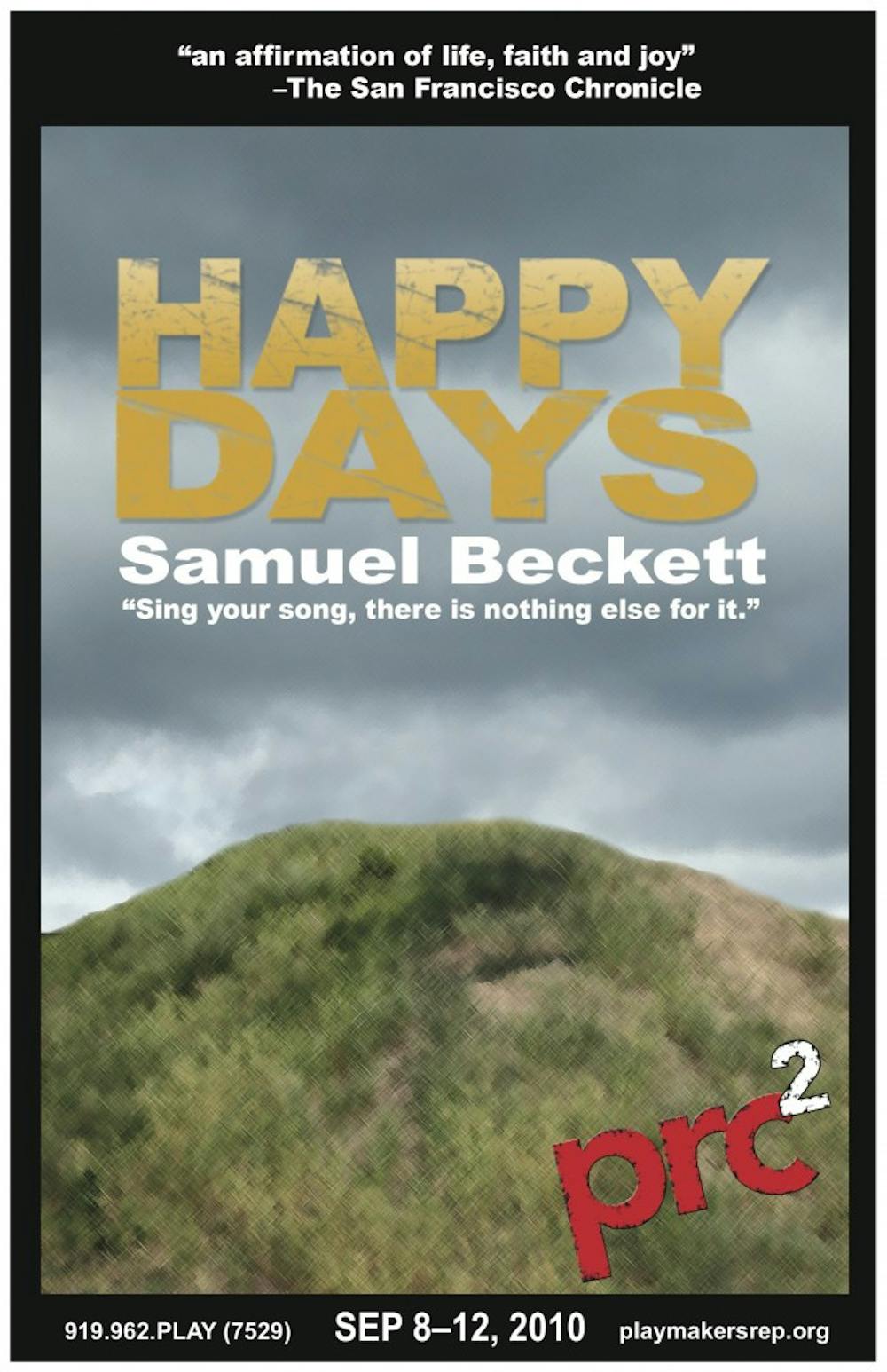Winnie is stuck in more ways than one.
Buried to her waist in a growing mound of dirt, bathed in perpetual daylight and yearning for acknowledgement, UNC professor Julie Fishell plays the optimistic Winnie in Samuel Beckett’s “Happy Days,” which opens the “PlayMakers Repertory Company”:http://www.playmakersrep.org/’s season tonight.
“At the center of the play is this really strong life force,” said director Rob Melrose. “Winnie is unbelievably positive. No matter what adversity she comes to, she sees a positive way through it.”
“Happy Days” depicts a typical day in Winnie’s desolate life.
PlayMakers has not produced a Samuel Beckett play in more than 20 years. It was time for the company to share Beckett’s work with the community, said PlayMakers’ producing artistic director Joseph Haj.
“It’s simply a masterpiece of existential drama,” Haj said.
Each day after Winnie wakes, she sings a prayer and catalogues the contents of her black shopping bag — a morning routine.
As the dirt slowly covers her, Winnie tries to find solace by talking incessantly to her husband, Willie.
Played by UNC professor Ray Dooley, Willie rarely emerges from behind the mound — and acknowledges his wife even less.




